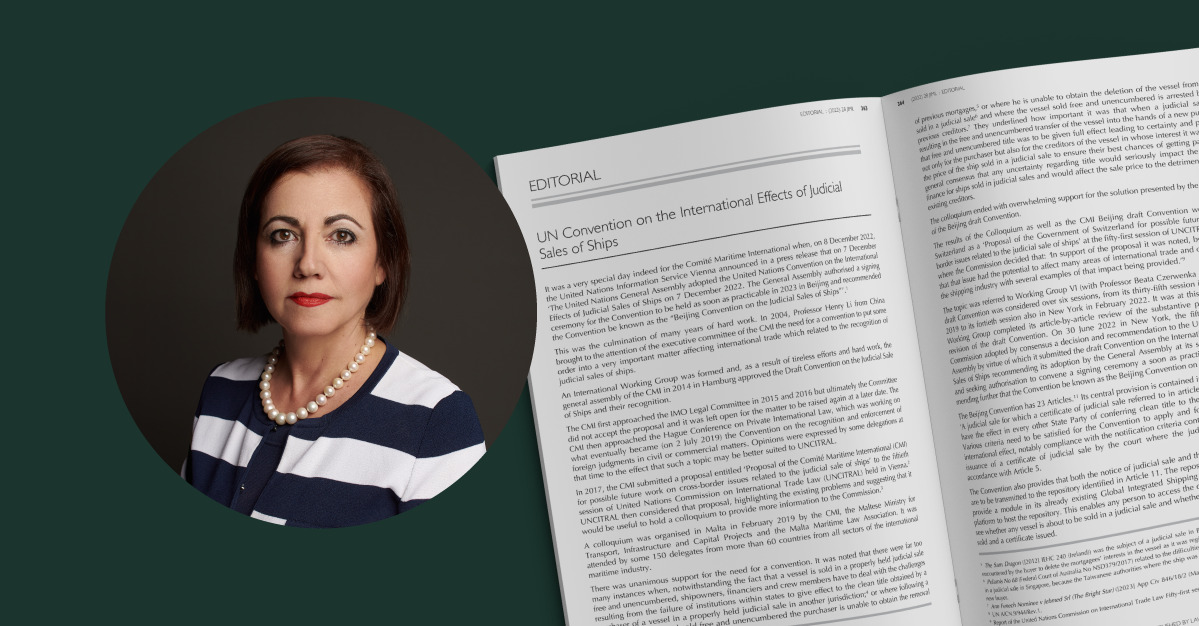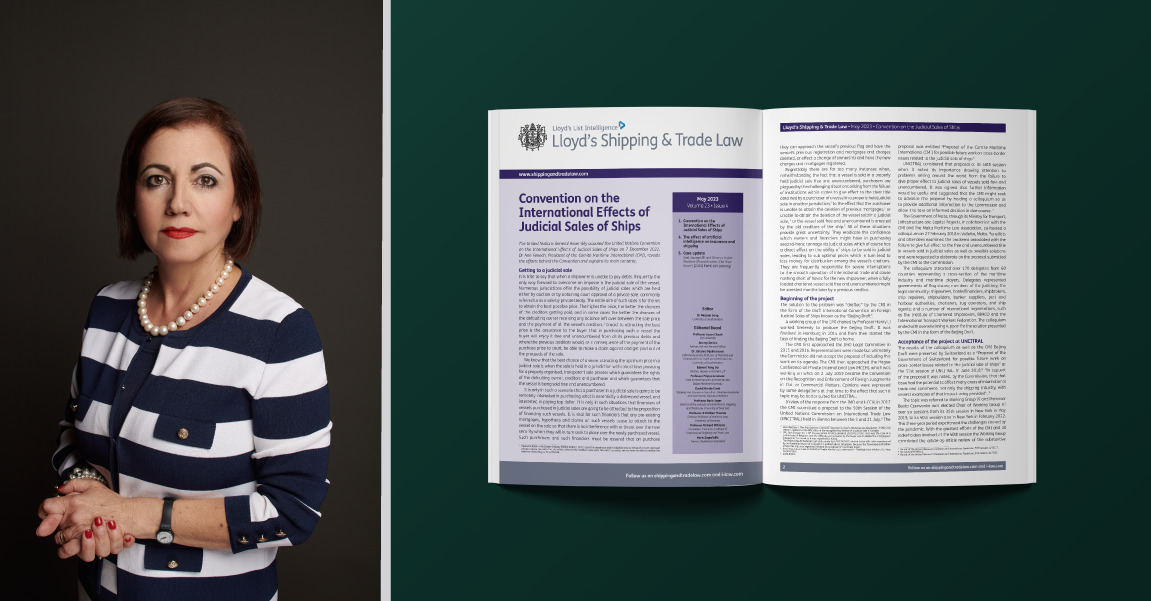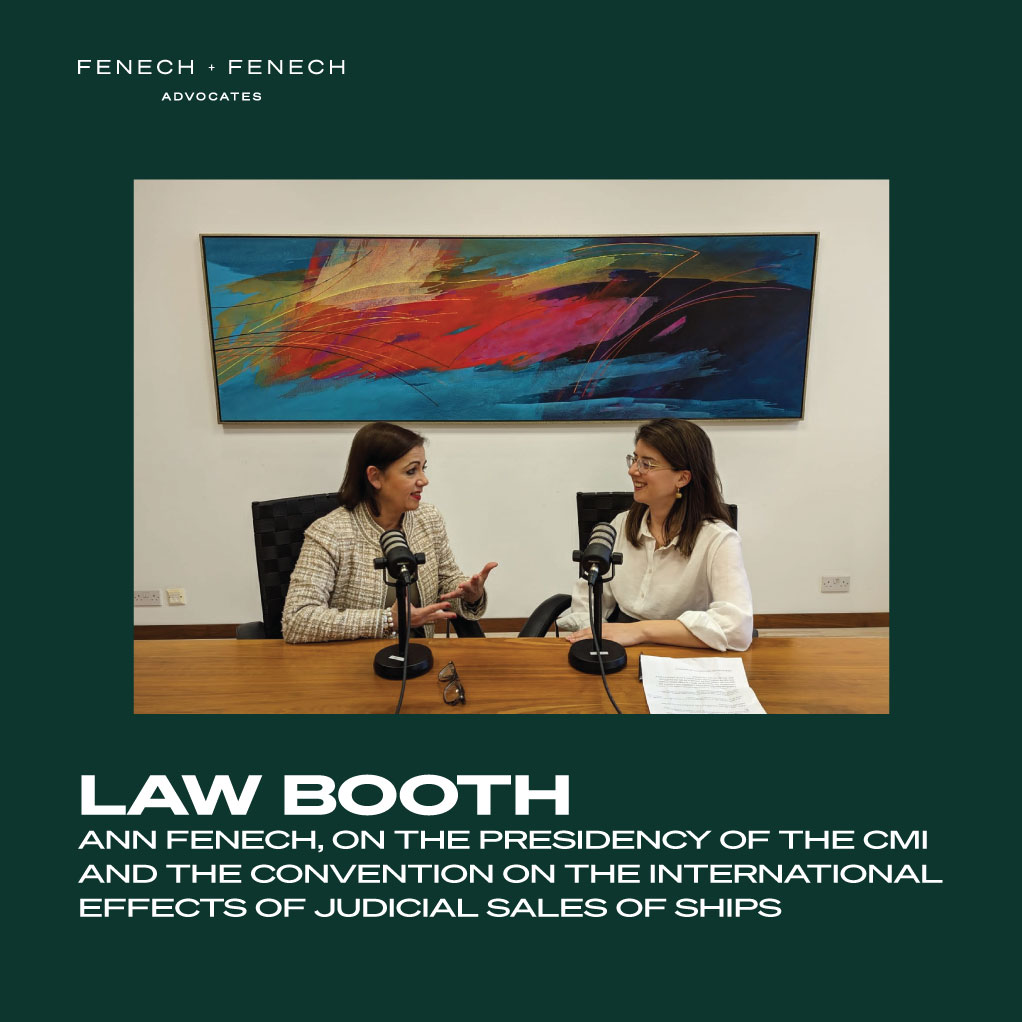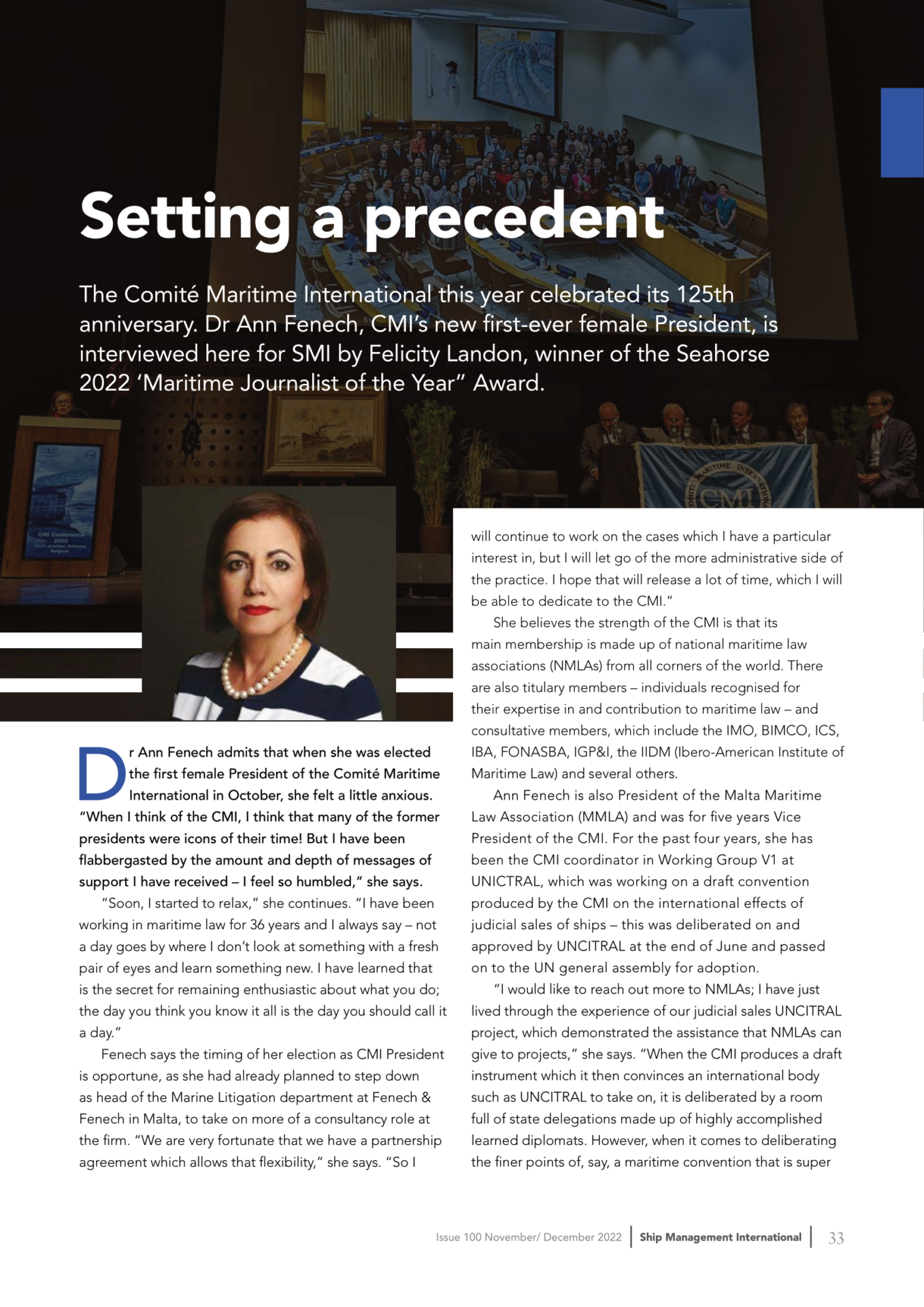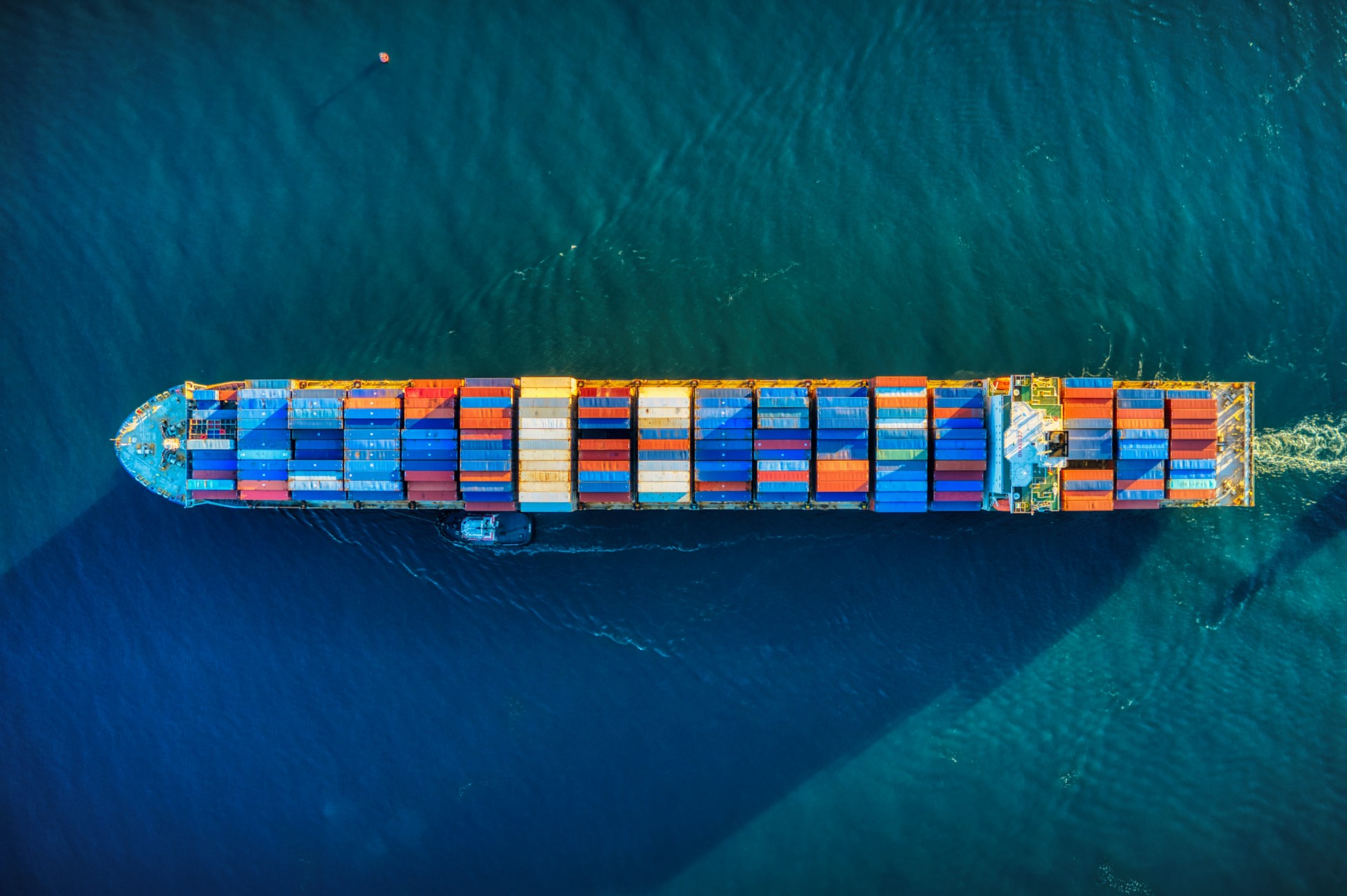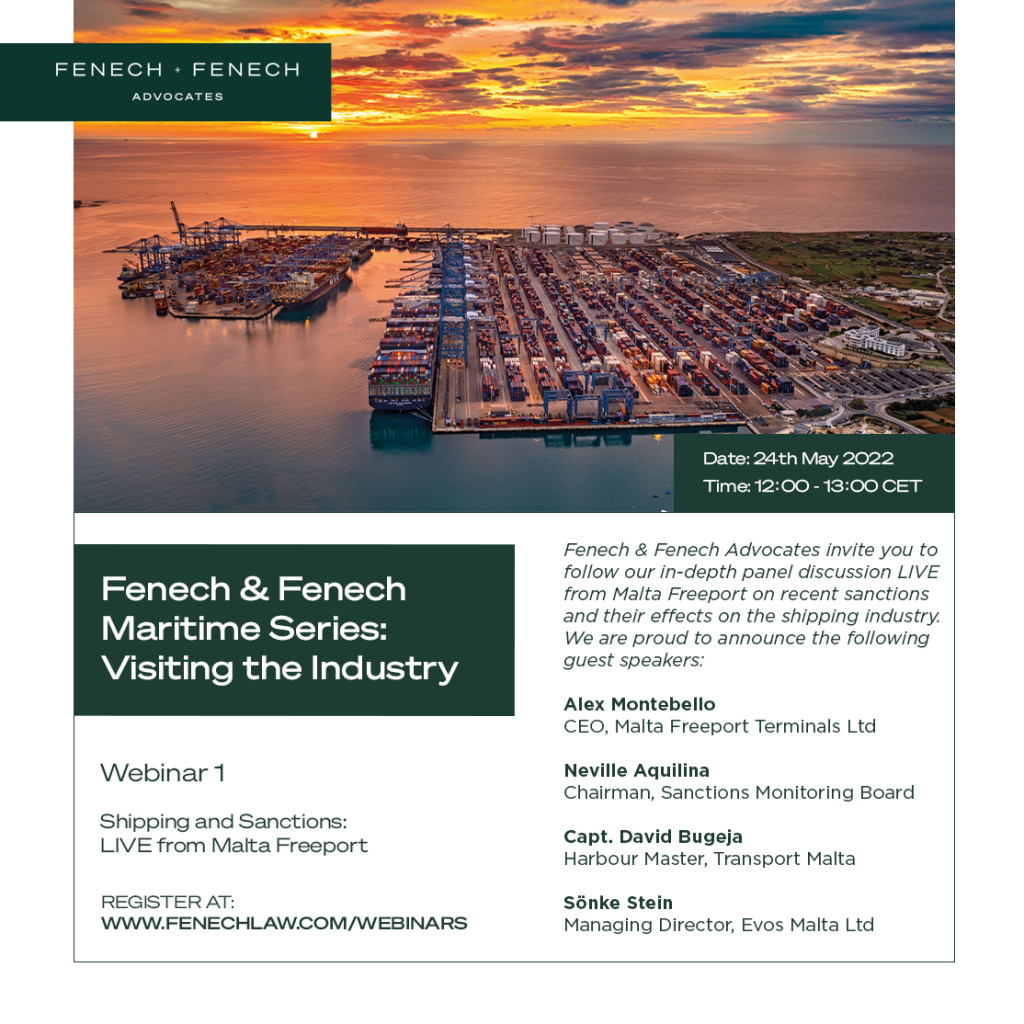
AUTHOR
Ann Fenech
Daniel-Luc Farrugia
READING TIME
5 MINS
On the 26th April, the Malta Symposium on the Convention on the International Effects of Judicial Sales of Ships (Convention) was held under the auspices of The Comité Maritime International (CMI) together with the Ministry for Foreign and European Affairs and Trade and the United Nations Commission on International Trade Law (UNCITRAL). It was the occasion for over 150 delegates from more than 50 countries to partake of a unique opportunity to discuss with main international legislators and stakeholders the various ramifications of the new Convention on the International Effects of Judicial Sales of Ships.
As stated by José Angelo Estrella-Faria, Principal Legal Officer and Head of the Legislative Branch at the UNCITRAL secretariat, the entire raison d’être for this ‘minimalistic convention’ is to obtain clarity, certainty and stability to the sale and purchase of ships in judicial sales. It is essential to emphasise that 90% of world trade is directly attributed to the shipping industry.
This symposium was organised practically five years after the ‘Malta Colloquium on Judicial Sales’ which was held in February 2018 and had taken place through the suggestion of UNCITRAL who had proposed that such a Colloquium be held with a view to getting together the thoughts of the industry prior to committing itself to take on such activity. That Colloquium had managed to garner overwhelming support in favour of an absolute need for such a Convention to come into force eventually leading to harmonisation of state laws ensuring that the free and unencumbered title obtained by the purchaser in a judicial sale would be given its proper effect. Malta was once again the venue for the symposium which this time focused on the content of the Convention that had been adopted by the United Nations General Assembly as well as the necessity for its ratification by as many states as possible.
All speakers approached the subject though their particular expertise but emphasised one same message centering upon the indispensability for the Convention.
Ann Fenech, CMI President and the CMI co-ordinator in Working Group VI at UNCITRAL, highlighted the significant hurdles which invariably arise whenever the free and unencumbered title acquired through a judicial sale is not honoured as when for instance old creditors re arrest the vessel after the free and unencumbered sale to the new owner, flag registries are reluctant to issue deletion certificates following the sale, or reluctant to register the vessel in the name of the new owners. All these situations in turn resulting in significant disruptions to global trade.
The Symposium was also addressed by Jason Korbetis (director of Bluefin Marine and one of the shipping industry’s stakeholders) who had purchased the Bright Star through judicial auction in Jamaica back in 2018. He had subsequently seen his vessel twice arrested by its previous owner’s creditors and used this firsthand experience to recount the anguish he had felt due to the insecurity and obscurity resulting from not having a clear-cut framework in place. During his address, Mr. Korbetis reiterated that, “There was a lot of frustration, costs, and waste of time. All very unnecessary. Common sense and shipping logic prevailed in all jurisdictions, but it took four to four and a half years to sort it out. My experience is negative with a happy ending. There is no uniform process on judicial sales and this Convention will introduce legal clarity.”
Another prominent speaker was Tilman Stein, formerly Head Group Legal of Deutsche Bank AG, Ship Finance Department. He underlined the importance of ensuring that when ships are sold in a judicial sale, that they fetch the best possible price in the interest of all the creditors including financiers. This would only happen if purchasers were guaranteed that the free and unencumbered title in the ships they purchased would be given proper effect in other jurisdictions.
Needless to say, this situation discourages interested buyers from purchasing vessels in judicial sales and it is also a great disincentive for financiers to finance purchases in judicial sales upon witnessing the possible repercussions such a process may produce. This potential uncertainty does effect potential buyers and the price which they would be prepared to pay for the vessels which in turn effects the chances of the creditor’s getting paid out of the proceeds. Potential purchasers would reconsider paying out substantial amounts of money in order to match the vessel’s true market value and as a consequence creditors are in turn only left with a fraction of the monetary value expected to be made.
This Convention is being hailed by maritime practitioners worldwide as one of the most important maritime legal instruments in recent years. The Director of Justice Policies/DG Justice and Consumers within the EU Commission, Richard Sonnenschein, along with Angèle Sears-Debono, Legal and Policy Officer within the Civil Justice Unit, both welcomed the Convention and showed unwavering support in their belief that this kind of multilateral instrument acts to promote trade, in that “it will meet the commercial needs of both the shipping and financial industry”.
The chair of UNCITRAL working group VI on judicial sales, Beate Czerwenka stated that whereas the Convention enters into force 180 days post ratification and this by only three states, in order for it to truly fulfil its purpose and be considered a success story, as many states as possible would need to ratify it. She praised the broad participation from members of UNCITRAL throughout the discussions and lauded the Convention’s spirit in seeking to reach a valid compromise.
Mr. Justice Ian Spiteri Bailey, President of the Maltese Commercial Court, expressed his personal satisfaction as regards the Convention emphasising how this would simplify processes.
Frederick Kenney, Director of Legal Affairs and External Relations at the London-based International Maritime Organisation (IMO) fully endorsed the Convention and reiterated the fact that the IMO itself would act as a repository for the notices of judicial sale and certificates of judicial sale under the Convention. Here it is relevant to note that at the last meeting of the IMO Legal Committee LEG 110, Ann Fenech, as CMI President presented a joint paper as submitted by CMI and UNCITRAL wherein an analysis of the Convention was delivered to the state members of the legal committee. This was followed by an appeal to attendees to recommend its ratification to their respective governments. This intervention was widely welcomed and firmly supported by delegations of numerous states, including the United States, Japan, China, Thailand, Georgia, New Zealand, Australia, Croatia, Greece along with BIMCO and the International Chamber of Shipping.
Other speakers included: Petar Kragic, Maritime Legal Consultant and Croatian Delegate at UNCITRAL’s Working Group VI, Eduardo Albors, Partner at Albors, Galiano, Portales and consultant to the Spanish delegation at UNCITRAL’s Working Group VI, Peter Laurijssen, Legal Director Compagnie Maritime Belge, member of the BIMCO Documentary Committee, delegate for BIMCO and ICS at UNCITRAL’s Working Group VI and Ivan Sammut, Malta’s Registrar General of Shipping and Seamen. Dr. Suzanne Shaw, partner at Dingli&Dingli moderated the panel discussion.
The Maltese Ministers of Foreign Affairs Hon. Ian Borg, of Justice Hon. Jonathan Attard, and of Transport, Infrastructure and Capital Projects Hon. Aaron Farrugia, themselves each presented papers at the Symposium, applauding, and backing the Convention. Between the three ministers, Malta affirmed its position in making a public commitment to have this Convention ratified with Minister Borg describing it as being in the national interest to do so.
In the morning of the 5th of September in Hall A of the National Convention Centre in Beijing, hundreds of people witnessed the signing ceremony of the Convention organised by the Chinese Government and UNCITRAL. Fifteen States signed the Convention: China, Burkina Faso, Comoros, El Salvador, Kirabati, Grenada, Honduras, Liberia, Sao Tomi and Principe, Saudi Arabia, Senegal, Siera Leone, Singapore, Switzerland and Syria.
How can we help?
Should you require any further information or assistance on the matter, please do not hesitate to reach out to us personally on
Ann Fenech – ann.fenech@fenechlaw.com
Daniel-Luc Farrugia – daniel.farrugia@fenechlaw.com
©Fenech & Fenech Advocates 2023
Disclaimer │ The information provided in this article does not, and is not intended to, constitute legal advice. All information, content, and materials available are for general informational purposes only. This article may not constitute the most up-to-date legal or other information and you are advised to seek updated advice.









